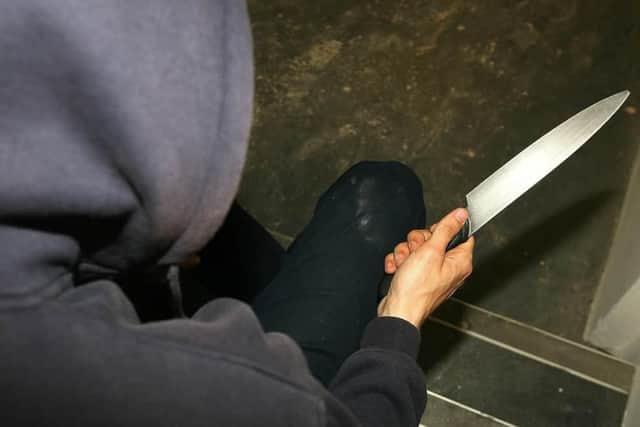Equivalent of four knife crimes reported every day in South Yorkshire as incidents rocket by 19 per cent
and live on Freeview channel 276
At least four people in Sheffield have died of fatal stab wounds since the beginning of this year. Reece Radford, Carlo Gianinni and Richard Dentith were killed in knife attacks carried out on the city’s streets, while Saira Ali was killed after being stabbed at her home.
Countless more have been injured and rushed to hospital as a result of Sheffield knife attacks.
Advertisement
Hide AdAdvertisement
Hide AdRecent figures from the Office of National Statistics show South Yorkshire Police recorded 1,566 offences involving a knife or sharp object in the year to March, up 19 per cent from 1,319 the year prior. This equates to an average of four knife-related offences being recorded every day in South Yorkshire between March 2021 and March 2022


The 2021/22 figures were also up from pre-pandemic levels, with 974 offences logged in the year to March 2020.
Patrick Green, CEO of the anti-knife crime charity, Ben Kinsella Trust, said the national increase in knife crime demonstrates that ‘despite lots of tough talking and promise,’ not enough has been done to tackle the problem.
Mr Green added: “With more austerity cuts looming, we must not repeat the mistakes of the past and reduce police funding and cut youth services. Only through strong enforcement and investing in prevention and early intervention services can we hope to make any headway against this growing menace.”
Advertisement
Hide AdAdvertisement
Hide AdIt means the rate of knife crimes stood at 114 per 100,000 people last year – well above the national rate of 82 per 100,000.
Despite a national increase, firearm offences fell in the area as South Yorkshire Police recorded 242 crimes last year, down from 295 the year prior. There were 18 gun offences for every 100,000 people in the area last year, while the overall rate across England and Wales was 10 per 100,000.
Nationally, 48,900 knife and sharp object offences were recorded in the past year – up from 44,600 the previous year, but below 55,100 in the year to March 2020.
Police forces across England and Wales also recorded a slight increase in firearm offences – there were 5,750 in the year to March, up from 5,715 the year prior. The Home Office said an increase in the number of violent crimes recorded in recent years is thought to be driven by improvements in police recording practices.
The figures show 115 people were hospitalised nationally due to an assault with a firearm and more than 4,000 were hospitalised for assault by a sharp object last year.
Advertisement
Hide AdAdvertisement
Hide AdA Home Office spokesperson said the figures fail to account for the impact of the pandemic on crime and added the levels of knife crime and offences involving a firearm remain lower than they were before the pandemic.
“We are determined to tackle violent crime and it is why police funding this financial year will total up to £16.9 billion, with the number of officers on our streets already at a 10-year high thanks to the police uplift programme," they added.
A National Police Chiefs’ Council spokesperson said officers are committed to preventing violent offences and added tackling knife crime and removing weapons from the streets are ‘top priorities’.